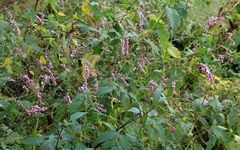Introduction
Plants accompany us, especially those familiar wildflowers, wild grasses, and wild vegetables that thrive by the roadside, in the wilderness, and even in many urban areas… However, many of us are either unaware of them, have become indifferent, or have gradually distanced ourselves from them due to our later life experiences, leaning more towards practical and utilitarian things. When encountering related issues in the wild and seeking solutions, there is no need to look far; if nothing else, at least it adds some interest to life, as they are right beside us.
Scientific Name: Qing Ma (苘麻, qǐng má)
Common Names: Bai Ma, Qing Ma, Wild Cotton, Ye Sheng Mao, Mo Pan Dan, Che Lun Cao, Dian Yuan Zi Dan, Man Tou Mu, Kong Ma, Mo Zai Dun, Mao Dun Cao, Ye Huo Ma, Ye Zhi Ma, Zi Qing, Lu Qing, Ye Qing, Ye Ma, Gui Man Tou Cao, Jin Pan Yin Zhan.
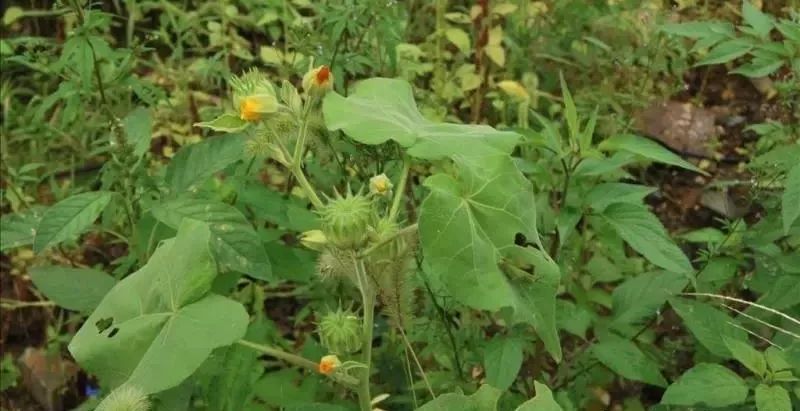
Chemical Components: The aerial parts contain 0.2% rutin.
Properties: According to “Shanghai Commonly Used Chinese Herbal Medicine”: “Whole herb: Bitter, Neutral.”
Functions and Indications:
1. According to “Fujian Folk Herbal Medicine”: “Leaves: Treats carbuncles and swelling toxins.”
2. According to “Shanghai Commonly Used Chinese Herbal Medicine”: “Whole herb: Detoxifies, dispels wind. Treats dysentery, otitis media, tinnitus, deafness, and joint pain.
Scientific Name: Dogtail Grass (狗尾草)
Common Names: Green Dogtail Grass, Gu Yao Zi, Dogtail Grass.
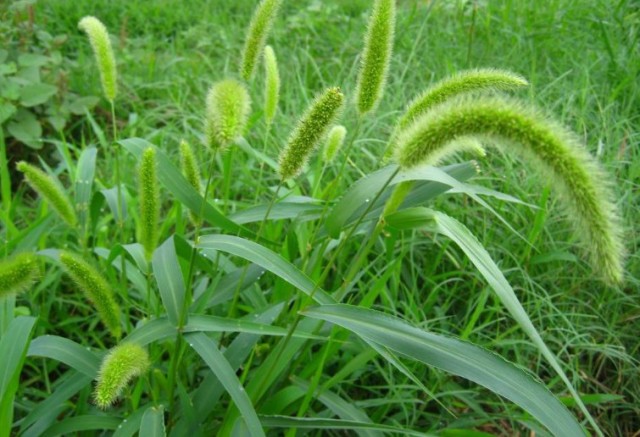
Indications: Clears heat, removes dampness, reduces swelling. Treats carbuncles, sores, and conjunctivitis.
Dogtail Grass is highly adaptable and widely distributed in China, possessing certain medicinal value.
Flower Language: Perseverance, being misunderstood, difficult love, unrequited love.
Scientific Name: Shepherd’s Purse (荠菜)
Common Names: Also known as Ji, Shepherd’s Purse Flower, Ling Jiao Cai, Hu Sheng Cao, Ji Cai, Sha Ji, Zong Zi Cai, Xiang Ji, Di Cai, Di Di Cai, Di Cai Hua, San Jiao Cai, Xiang Shan Cai, Qing Ming Cao, Hu Sheng Cai, Ji Cai, Xi Cai, Ji Xin Cai, Jing Chang Cao, Xi Xi Cai, Tian Er Cai, Jia Ji Cai, Lan Chi Cai, Ban Cai, etc.
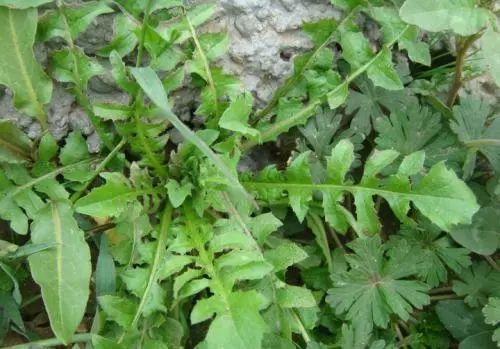
It is a popular edible wild vegetable found worldwide. It has high nutritional value and various methods of consumption.
Functions and Indications: Cools blood and stops bleeding, clears heat and promotes urination. Used for renal tuberculosis with hematuria, postpartum uterine bleeding, excessive menstruation, pulmonary tuberculosis with hemoptysis, hypertension, fever from colds, nephritis with edema, urinary stones, chyluria, enteritis, diarrhea, and dysentery.
Scientific Name: Cang Er (苍耳)
Common Names: Juan Er, Shi, Ling Er, Hu Zai, Di Kui, Si Er, Er Er, Bai Hu Cui, Chang Si, Jue Er, Er Dang Cao, Chang Si, Chang Si Cai, Yang Fu Lai, Zhi Ci, Jin Xian Cai, He Qi Cao, Fo Er, Jian Si Cao, Ye Jian Si, Ye Qie, Zhu Er, Chi Tou Po, Shi Ma Tou, Nian Nian Kui, Bai Chi Tou Po, Ci Er Ke, Jia Ai Gua, Bai Zhu Mu Luo, Ding Chuang Cao, Ye Zi Cai, Ye Luo Su, Gou Er Duo Cao, Cang Zi Ke, Qing Ji Zi, Cai Er, Nian Nian Lian, You Ba Zi, Chi Tou Mang.

This species is recorded as a toxic plant in the Chinese Plant Atlas Database, with toxicity present throughout the plant, especially in the fruit and seeds. Consuming 25-400g of roasted seeds can cause poisoning, with symptoms appearing within 4-5 hours to 3 days. Severe cases of Cang Er poisoning can lead to death.
Indications: Colds; headaches; dizziness; nasal congestion, red eyes, eye opacity, wind-heat bi pain, spasms and numbness, wind leprosy, carbuncles, scabies, skin itching, hemorrhoids, dysentery, dispels wind and heat, detoxifies and kills insects. Treats damp bi and spasms, disperses wind and removes dampness, opens orifices and relieves pain.
Scientific Name: Ai Cao (艾草)
Common Names: Bing Tai, E Cao, Xiang Ai, Qi Ai, Ai Hao, Ai, Jiu Cao, Yi Cao, Huang Cao, Ai Rong, etc.
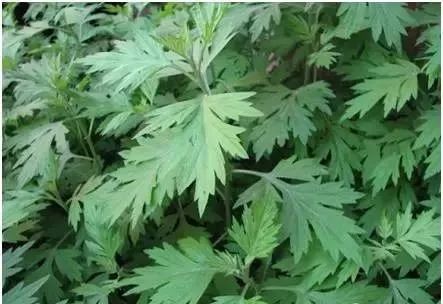
Ai Cao is a perennial herb distributed in Asia and Europe. It is commonly used in acupuncture for moxibustion.
Functions and Indications: Dispels wind, removes dampness, regulates menstruation. Used for rheumatic joint pain, skin itching, and irregular menstruation.
Scientific Name: Zhi Li (蒺藜)
Common Names: Ming Ci, Pang Tong, Qu Ren, Zhi Xing, Xiu Yu, Sheng Tui.
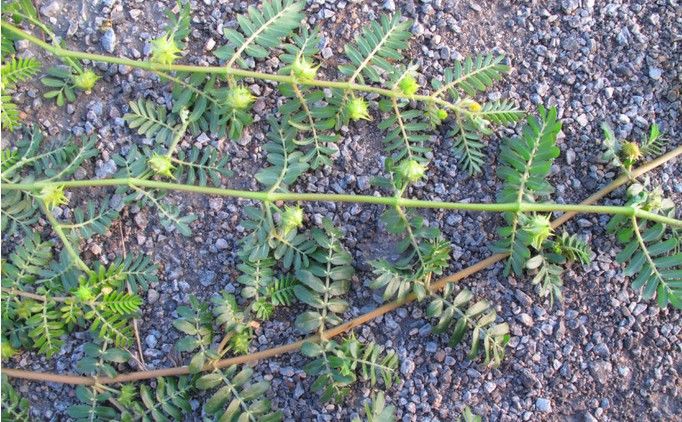
Zhi Li is an annual or perennial herb, densely covered with grayish-white soft hairs. Its main medicinal effects include soothing the liver and relieving depression, promoting blood circulation and dispelling wind, improving vision, and relieving itching.
Scientific Name: Suan Zao (酸枣)
Common Names: Also known as Ji, Ji Zi, Wild Zao, Mountain Zao, Ge Zhen, etc.
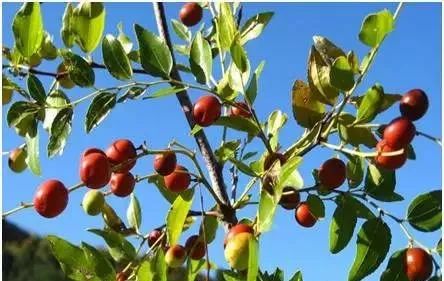
Suan Zao has high nutritional value and medicinal value. It is commonly used as food.
Indications: 1. Gallbladder wind sinking star (gallbladder wind toxic gas, imbalance of deficiency and excess, drowsiness). Use Suan Zao Ren (1 liang, raw) and wax tea (2 liang), apply ginger juice to roast until slightly charred for powder. Take 2 qian, add 7 fen of water, decoct until 6 fen, and take warm.
Scientific Name: Long Kui (龙葵)
Common Names: Yan You, You You, Di Pao Zi, Di Rong Cao, Er Cai, Fei Tian Long, Gou Niu Zi, Hei Gu Niang, Hei Qie, Hei Qie Zi, Hei Xing Xing, Xing Xing, Tian Tian, Hou Hong Zi, Jiu Er Cao, Ku Cai, Ku Kui, Lao Ya Suan Jiang Cao, Lao Ya Yan Jing Cao, Long Kui Cao, Qi Li Kou, Shan Hai Jiao, Shan La Jiao, Shu Duan, Shui Ku Cai, Suan Jiang Cao, Tian Pao Cao, Tian Pao Guo, Tian Qie Cai, Tian Qie Miao Er, Tian Qie Zi, Tian Tian Qie, Wu Ding Cao, Wu Gui Cai, Ye Hai Jiao, Ye La Jiao, Ye La Jiao, Ye Pu Tao, Ye Qie Cai, Ye Qie Zi, Ye San Zi, Bai Hua Cai, Qian Qian Zi.
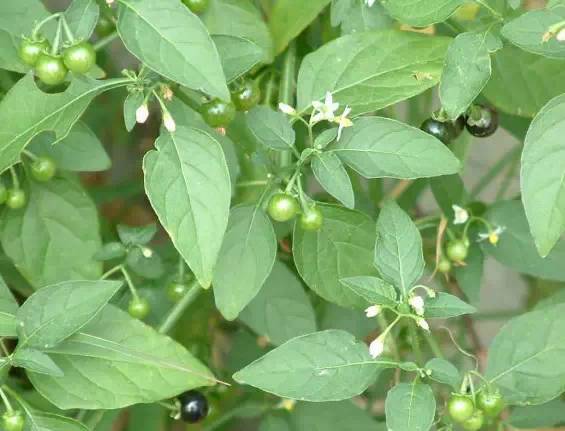
Functions and Actions: Clears heat, detoxifies, invigorates blood, reduces swelling. Treats carbuncles, abscesses, erysipelas, sprains, chronic bronchitis, acute nephritis. Used for carbuncles, abscesses, skin eczema, dysuria, chronic bronchitis, excessive leukorrhea, prostatitis, and dysentery.
Scientific Name: Tu Si Zi (菟丝子)
Common Names: Dou Ji Sheng, Wu Gen Cao, Huang Si, Jin Huang Si Zi, Ma Leng Si, Ba Qian Tian, Huang Shan Teng, Tu Er Si, Tu Si Shi, Tu Si Zi, Wu Niang Teng Mi Mi, Huang Teng Zi, Long Xu Zi, Luo Si Zi, Huang Wang Zi, Huang Luo Zi, Dou Xu Zi, Chan Long Zi, Huang Si Zi.
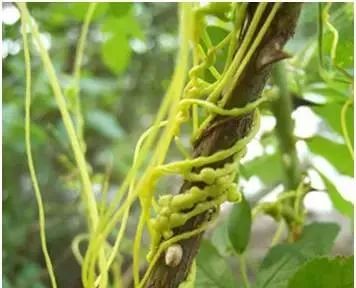
Tu Si Zi has a spicy and sweet taste, slightly warm in nature; it enters the liver, kidney, and spleen meridians; it has a harmonizing and gentle nature, capable of both floating and sinking.It has the effects of tonifying the kidney and benefiting essence, nourishing the liver and improving vision, strengthening the spleen and securing the fetus.
Indications: Low back pain, tinnitus, impotence, diabetes, infertility, enuresis, cloudy urination, dizziness, poor appetite, diarrhea, dysentery, and fetal restlessness.
Scientific Name: Ci Xian (刺苋)
Common Names: Le Xian Cai, Wild Xian Cai, Tu Xian Cai, Zhu Mu Cai, Ye Le Xian, Ci Ci Cao, Ye Ci Xian Lai, Suan Suan Xian, Ci Xian Cai.
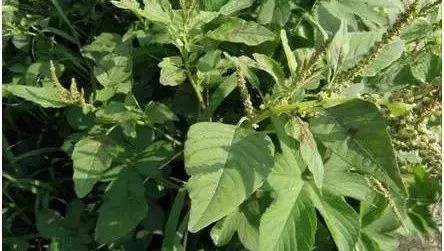
Functions and Indications: Clears heat and detoxifies; promotes urination; relieves pain; detoxifies and reduces swelling; clears the liver and improves vision; dispels wind and relieves itching; kills insects and heals wounds; treats dysentery; red eyes; breast abscess; hemorrhoids; gastric bleeding; blood in stool; hemorrhoidal bleeding; cholecystitis; gallstones; damp-heat diarrhea; leukorrhea; painful urination; sore throat; eczema; carbuncles; gum ulceration; snake bites, etc.
Scientific Name: Li (藜)
Common Names: Lai (《诗经》), Li, Man Hua (《尔雅》), Meng Hua (《尔雅》 Guo Pu’s note), He Ding Cao (《土宿本草》), Hong Luo Li, Shun Mang Gu (《救荒本草》), Hong Xin Hui Liao (《庚辛玉册》), Luo Li, Yan Zhi Cai (《纲目》), Fei Yang Cao (《广州植物志》), Hui Xian Cai (《四川中药志》), Hui Li, Hui Cai, Hui Tiao (《中国沙漠地区药用植物》).
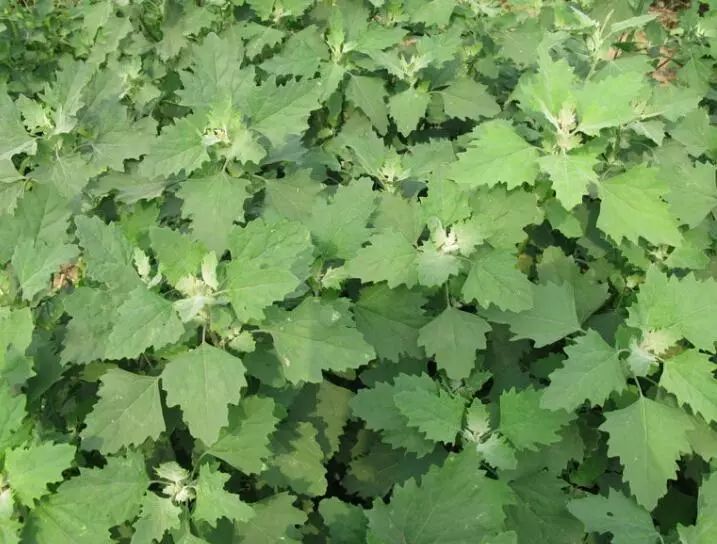
Functions and Indications: Clears heat, promotes dampness, kills insects. Treats dysentery, diarrhea, damp sores and itching, and insect bites.
Scientific Name: Ma Chi Xian (马齿苋)
Common Names: Also known as Chang Shou Cai, Ma Chi Cai, Ma She Zi Cai, Ma Zha Cai, Ma Che Cao, Ma Chi Long, Suan Xian, Di Ma Cai, Wu Xing Cao (the leaf shape of Ma Chi Xian resembles a horse’s tooth, symmetrically growing, with soft stems spreading on the ground, green leaves, red stems, yellow flowers, white roots, and black seeds, hence also called “Wu Xing Cao”), Chang Ming Cai, An Le Cai, Ma Xian Cai, Wu Se Xian, Wu Fang Cao, Suan Mi Cai, Gua Zi Cai, Gua Ren Cai, Ma Yi Cai, Zhi Jiao Cai, Zhu Ma Cai, Jiang Ban Cai, Jiang Ban Dou Cao, and Ma Ma Cai, etc.
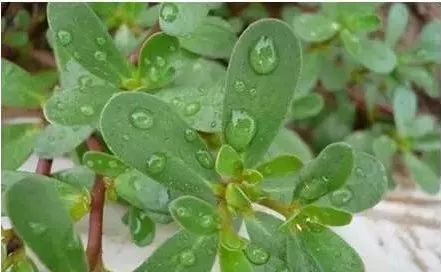
It is thick, juicy, hairless, and grows 10-30cm tall. It thrives in sunny places such as fields, roadsides, and garden ruins. It is distributed throughout the country. This species is a dual-purpose plant for food and medicine. The whole plant is used medicinally, with effects of clearing heat and promoting dampness, detoxifying and reducing swelling, anti-inflammatory, quenching thirst, and promoting urination; the seeds improve vision.
Scientific Name: Yi Mu Cao (益母草)
Common Names: Yi Mu Hao, Yi Mu Ai, Hong Hua Ai, Kun Cao, Chong Wei, San Jiao Hu Ma, Si Leng Zi Ke Ye Ma, Tian Ma Wei (Shandong dialect), Jiu Ta Hua, Shan Ma, and Jiu Jie Cao.
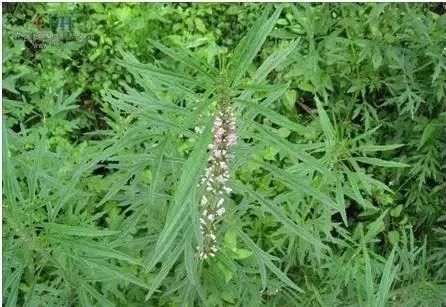
Yi Mu Cao’s effects: Invigorates blood and regulates menstruation, promotes urination and reduces swelling. Used for irregular menstruation, dysmenorrhea, amenorrhea, postpartum lochia retention, and acute nephritis edema.
Scientific Name: Jue Ming Zi (决明子)
Common Names: Jue Ming, Cao Jue Ming, Ma Ti Jue Ming, Jia Lu Dou.
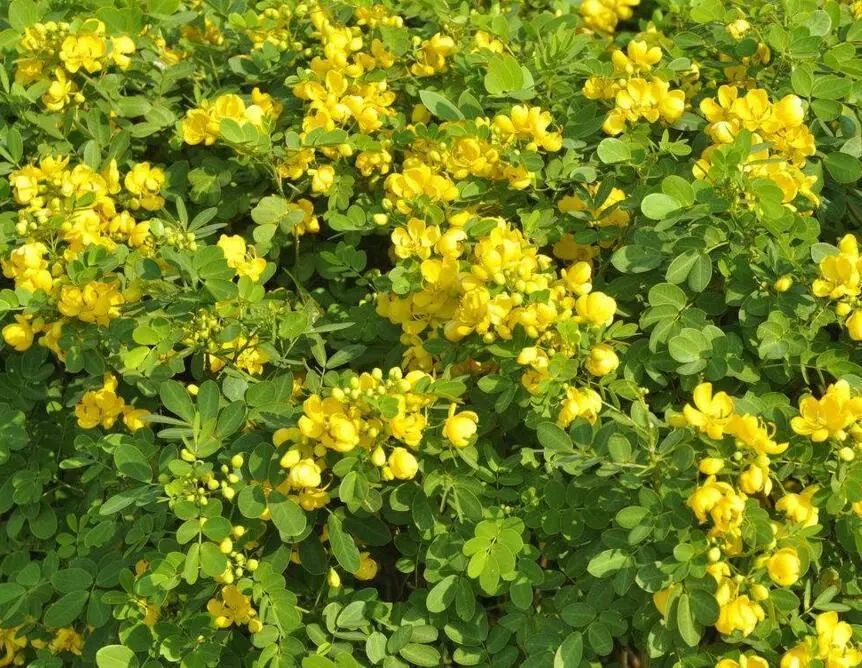
Functions and Indications: Clears heat and brightens the eyes, moistens the intestines and promotes bowel movements. Used for red, painful eyes, photophobia, excessive tearing, headaches, dizziness, dim vision, and constipation. It enters the liver, kidney, and large intestine meridians. It has weight loss effects. Treats wind-heat red eyes, blue blindness, night blindness, hypertension, hepatitis, liver cirrhosis with ascites, and habitual constipation.
Scientific Name: Lǜ Cǎo (葎草)
Common Names: La La Yang, La La Teng, Wu Zhua Long, Le Da Ye Wu Zhua Long, La Gou Dan, Ge Ren Teng.
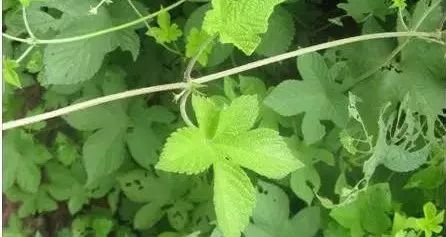
Functions and Indications: Clears heat and detoxifies, promotes urination and reduces swelling. Used for pulmonary tuberculosis with tidal fever, gastroenteritis, dysentery, fever from colds, dysuria, pyelonephritis, acute nephritis, cystitis, and urinary stones; externally used for carbuncles, eczema, and snake bites.
Scientific Name: Xiao Ji (小蓟)
Common Names: Wild Red Flower, Small Thorn Cover, Thorn Vegetable. Cat Thistle, Green Thorn Thistle, Thousand Needle Grass, Thorn Thistle Vegetable, Thorn Vegetable, Green Vegetable, Qiqi Vegetable, Gun Knife Vegetable, Wild Red Flower, Thorn Angle Vegetable, Thorn Angle Bud, Wood Thorn Ai, Thorn Rod Vegetable, Thorn Bud, Thorn Kill Grass, Ji Ji Mao, Small Evil Chicken Po, Thorn Radish, Small Ji Mu, Thorn Grass, Niu Chuo Thorn, Thorn Point Grass, Small Thorn Cover, Qiqi Bud (called in northern Anhui), Thorn Tooth Vegetable (called in northern Henan).
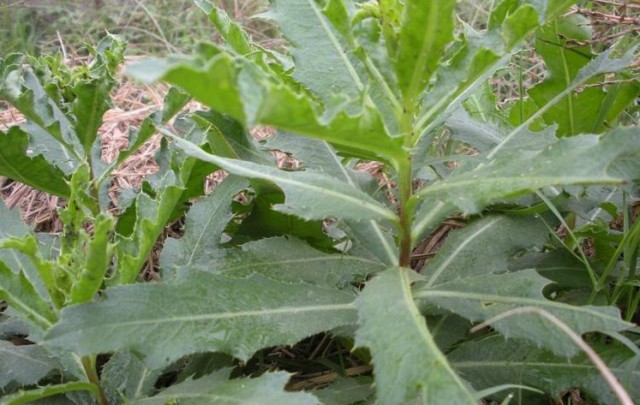
Functions and Indications: Cools blood and stops bleeding, dispels stasis and reduces swelling. Used for epistaxis, hemoptysis, hematuria, blood in stool, menorrhagia, external bleeding from trauma, and carbuncles.
Scientific Name: Shui Liao (水蓼)
Common Names: Water Spicy Liao, Water Pepper, Red Spicy Liao, Ban Jiao Grass, Liao Zi Grass, White Spicy Liao, Water Gong Zi, Spicy Flower Seed, Small Leaf Spicy Liao, Spicy Ai, Spicy Liao Zi Ke, Da Zhu, Spicy Grass, Water Flow Immortal, Fine Spicy Liao, Willow Liao Grass, Tong Gu Xiao, Yao Liao, Red Liao Zi Grass, Yao Liao Zi Grass, Spicy Grass, Spicy Willow Grass.
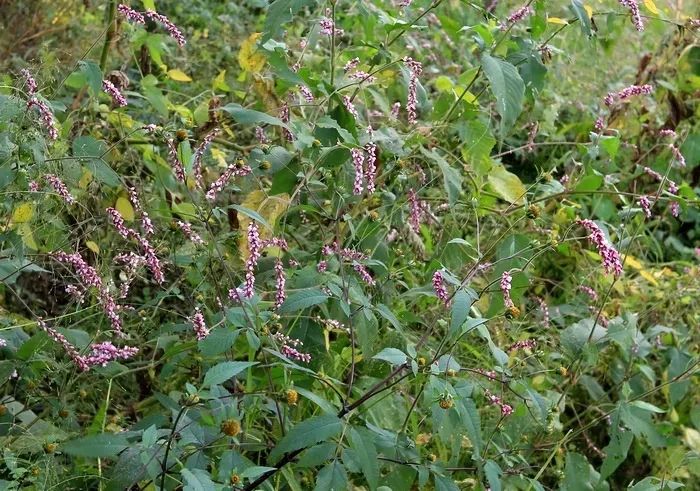
Functions and Indications: Transforms dampness, moves stagnation, dispels wind, reduces swelling. Treats abdominal pain from dampness, vomiting, diarrhea, dysentery, rheumatism, beriberi, carbuncles, scabies, and trauma.
Scientific Name: Niu Jin Cao (牛筋草)
Common Names: Qian Jin Cao (《纲目拾遗》); Qian Qian Ta, Tian Zi Cao, Qian Ren Ba (《福建民间草药》); Mu Zi Cao (《广西中兽医药植》); Niu Dun Cao, Ya Jiao Cao (《闽南民间草药》); Su Zi Yue, Ye Ji Zhua, Su Niu Qie Cao (《闽东本草》); Shui Ku Cao (《江西民间草药验方》); Bian Cao, You Hu Lu Cao, Xi Shi Cao, Qian Jin Cao (《上海常用中草药》); Ji Zi Cao (《福建中草药》).
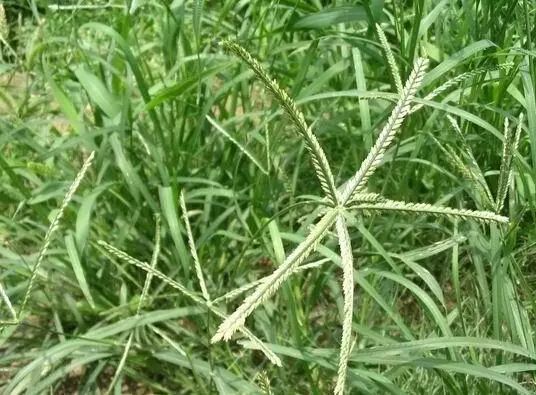
Functions and Indications: Clears heat, promotes dampness. Treats heat stroke fever, acute fright in children, jaundice, dysentery, dysuria; can also prevent and treat Japanese encephalitis.
Scientific Name: Xiao Peng Cao (小蓬草)
Common Names: Xiao Bai Jiu, Canadian Peng Fei Cao, Small Fei Peng.
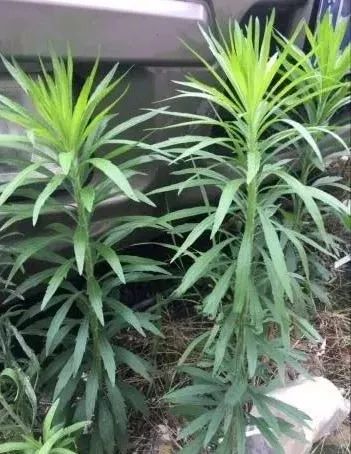
Originally from North America, now widely distributed. It is one of the most widely distributed invasive species in China.
Functions and Indications: Clears heat and promotes dampness; disperses stasis and reduces swelling. Used for dysentery; enteritis; hepatitis; cholecystitis; trauma; rheumatic bone pain; carbuncles; and skin ulcers.
Scientific Name: La Ba Hua (喇叭花)
Common Names: Qian Niu, Bai Chou, Bai Qian Niu, Cao Jin Ling, Chang Chun Teng Qian Niu, Chang Chun Ye Qian Niu, Zhao Yan, Chou Niu, Chou Niu Zi, Da Hua Qian Niu, Da Qian Niu Hua, Er Chou, Gou Er Cao, Hei Bai Chou, Hei Chou, Hei Qian Niu, Jiang Liang Zi, Jin Jiao La Zi, La Ba Hua, La Ba Hua Zi, Lie Ye Qian Niu, Pa Shan Hu, Qian Niu Hua, Qian Niu Lang, Qian Niu Zi.
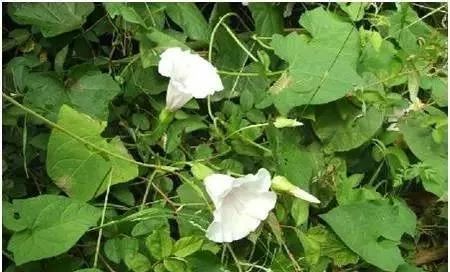
La Ba Hua symbolizes the joys and sorrows of ordinary people, eternal love, and unity.
Functions and Indications: Suitable for ascites, abdominal distension, constipation, and ascariasis.
Scientific Name: Tie Xian Cai (铁苋菜)
Common Names: Xue Jian Chou, Hai Bang Nian Zhu, Ye Li Cang Zhu.
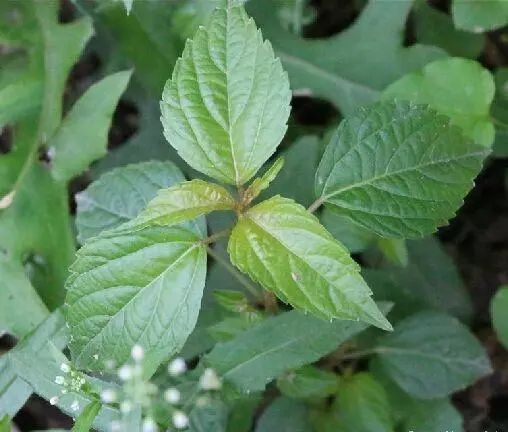
Functions and Indications: Clears heat and detoxifies, promotes dampness, and astringes and stops bleeding. Used for enteritis, dysentery, hemoptysis, epistaxis, hematuria, menorrhagia; externally treats carbuncles, ulcers, and dermatitis.
Scientific Name: Jie Jie Cao (节节草)
Common Names: Tu Ma Huang, Cao Ma Huang, Mu Zui Cao.
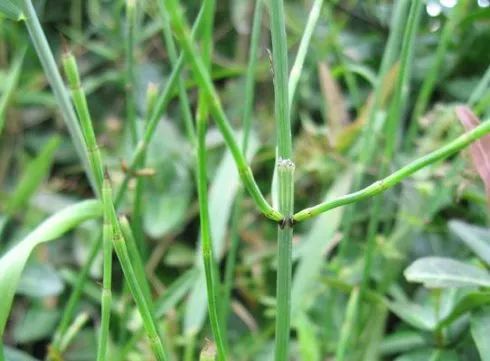
Functions and Indications: Treats epistaxis, hemoptysis, gonorrhea, menorrhagia, intestinal bleeding, urethritis, hemorrhoidal bleeding, trauma, and fractures.
Scientific Name: Bai Mao (白茅)
Common Names: Mao Gen, Lan Gen, Ru Gen (《神农本草经》), Di Jian, Di Jin (《名医别录》), Bai Hua Mao Gen (《日华子本草》), Di Jie Gen (《青海药材》), Mao Cao Gen (《江苏植药志》), Tian Cao Gen (《河北药材》), Si Mao Cao Gen (《中药志》).
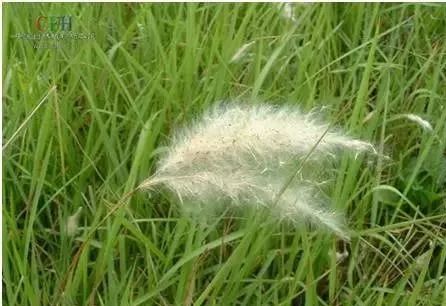
Cools blood, stops bleeding, clears heat, promotes urination. Treats heat disease with thirst, hemoptysis, epistaxis, lung heat with wheezing, stomach heat with nausea, gonorrhea, dysuria, edema, and jaundice.
Scientific Name: Bo Niang Hao (播娘蒿)
Common Names: Wild Mustard, Nan Ting Li Zi, Xi Re Le Jin Yi Ha Mu Bai.
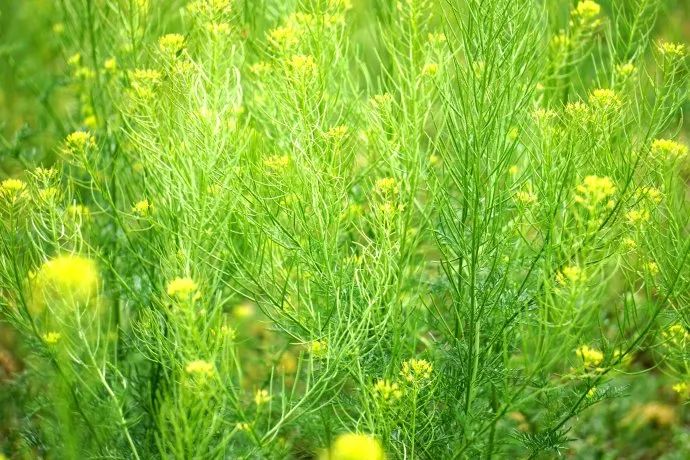
Functions and Indications: Chinese medicine treats phlegm and cough, facial swelling, chest and abdominal water accumulation, edema, and pulmonary heart disease. Mongolian medicine treats heat, organ heat, toxic heat, blood heat, “Xie Ri” heat, lung cold, cough, asthma, and pulmonary heart disease.
Scientific Name: Shui Sha Cao (水莎草)
Common Names: San Leng Cao.
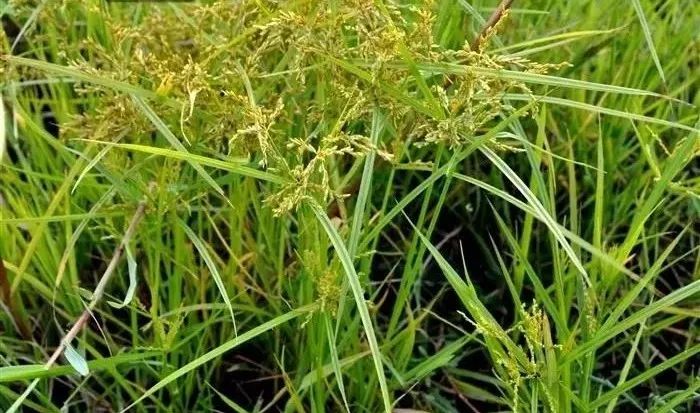
Functions and Indications: Stops cough, breaks blood, regulates menstruation, moves qi, relieves accumulation, and relieves pain. Used for chronic bronchitis, masses, postpartum stasis abdominal pain; indigestion, amenorrhea, and all qi and blood stagnation, chest and abdominal rib pain.
Scientific Name: Qian Cao (茜草)
Common Names: Ru Zhu, Ru Lu Ben, Mao Sou, Lu Ru, Sou, Qian Gen, Qian Cao, Di Xue, Niu Man, Lu Ru, Xue Jian Chou, Guo Shan Long, Di Su Mu, Huo Xue Dan, Hong Long Xu Gen, Sha Qian Yang Gen, Wu Zhua Long, Man Jiang Hong, Jiu Long Gen, Hong Ke Zi Gen, La La Yang Zi Gen, Xiao Huo Xue Long, Tu Dan Shen, Si Fang Hong Gen Zi, Hong Qian Gen, Ru Gu Dan, Hong Nei Xiao.
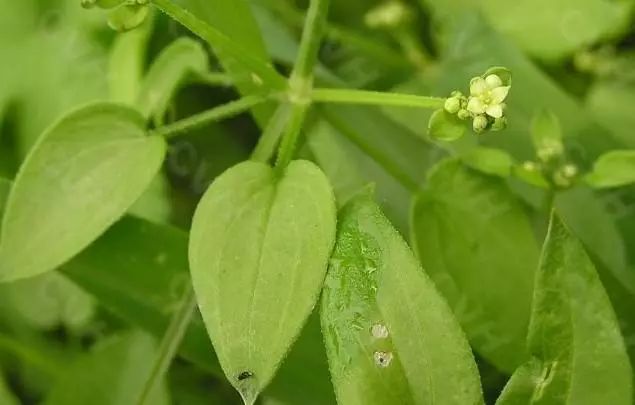
Functions and Indications: Cools blood and stops bleeding; invigorates blood and resolves stasis. Used for blood-heat hemoptysis; hemoptysis; epistaxis; hematuria; blood in stool; menorrhagia; postpartum stasis abdominal pain; trauma; rheumatic pain; jaundice; carbuncles; and hemorrhoids. Used for hemoptysis, epistaxis, menorrhagia, external bleeding from trauma, amenorrhea with stasis, joint pain, and swelling from falls.
Scientific Name: Yuan Zhi (远志)
Common Names: Ku Yuan Zhi, Ji Wan, Ji Yuan, Xiao Cao Gen Pi, Xi Cao Gen Pi, Xiao Ji Tui Pi, Xiang Cha Ye Gen Pi, Guo Guo Ma Gen Pi, Mi Er Cha Gen Pi, Yan Zi Cao Gen Pi, Cao Yuan Zhi, Shi Er Yue Hua Gen Pi, Xian Cha Gen Pi, Xiao Ji Gen, Luan Ye Yuan Zhi, Kuan Ye Yuan Zhi, Xi Bo Li Yuan Zhi, Xing Xin Zhang.
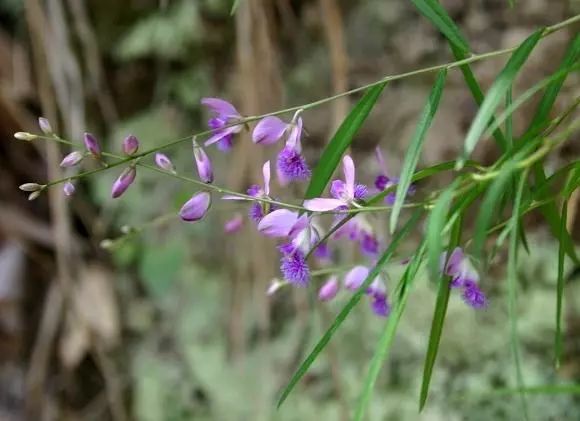
Functions and Indications: Calms the spirit and benefits intelligence, dispels phlegm, reduces swelling, treats insomnia with vivid dreams, and forgetfulness with palpitations.
Scientific Name: Ma Lan (马兰)
Common Names: Ma Lan Tou, Yu Qiao Chuan, Ni Qiao Chuan, Ji Er Chang, Tian Bian Ju, Lu Bian Ju, Suo Yi Cao, Pi Cao, Zi Ju, Ma Lan Ju, Peng Qi Ju, Hong Geng Cai, San Xue Cao.
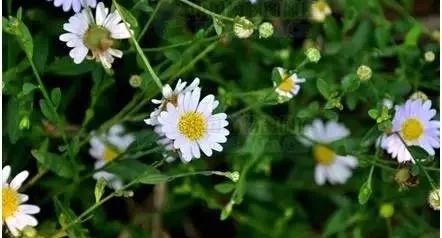
Functions and Indications: Can clear heat and detoxify, dispel stasis and stop bleeding, promote dampness, digest food, and relieve accumulation. Used for colds and fevers, cough, acute pharyngitis, tonsillitis, epidemic mumps, infectious hepatitis, gastric and duodenal ulcers, pediatric malnutrition, enteritis, dysentery, hemoptysis, menorrhagia; externally used for carbuncles, mastitis, and external bleeding; dysentery or damp-heat diarrhea; sore throat, carbuncles, and ulcers; blood-heat epistaxis, blood in stool; damp-heat jaundice; or edema, dysuria; food stagnation, and abdominal distension.
Scientific Name: Hu Zhang (虎杖)
Common Names: Invigorating Blood Dragon, Great Invigorating Blood, Flower Spotted Bamboo, Sour Tube Rod, Sour Tube Bamboo Shoot, Sour Soup Stem, Chuan Jin Long, Ban Zhuang, Ban Zhang Gen, Da Ye She Zong Guan, Huang Di Yu, Yin Yang Lian.
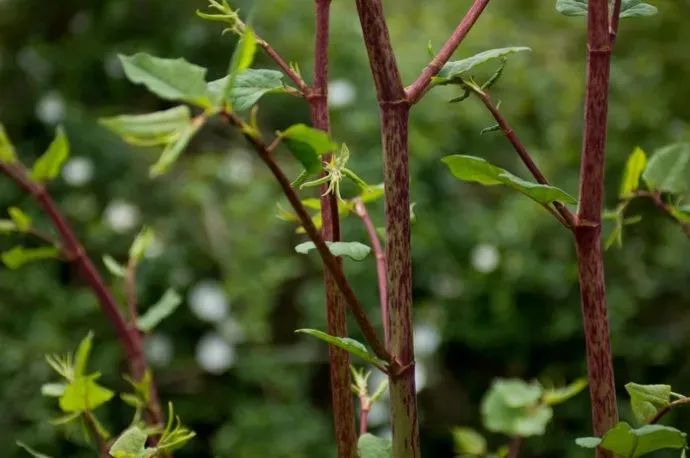
Functions and Indications: Used for damp-heat jaundice, cloudy urination, leukorrhea, wind-damp bi pain, carbuncles, and skin toxins, burns from water and fire, amenorrhea, masses, trauma, and cough from lung heat.
Scientific Name: Cu Jiang Cao (酢浆草)
Family: Oxalidaceae, Oxalis genus.
Common Names: Suan Jiang Cao, Suan Suan Cao, Ban Jiu Suan, San Ye Suan, Suan Mi Mi, Gou Gou Cao.
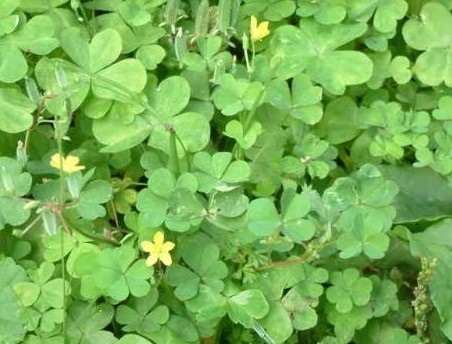
Cu Jiang Cao is a perennial herb with sparse soft hairs; the stems are creeping or obliquely ascending, with many branches. The leaves are alternate, palmately compound with 3 leaflets, heart-shaped, and leaflets without petioles. The flowers are yellow, preferring sunny, warm, and humid environments. In hot summer areas, it is advisable to provide partial shade; it has strong drought resistance but is not cold-resistant. It can grow in general garden soil, but it thrives in rich, humus sandy loam. The whole plant is used medicinally, with effects of clearing heat and detoxifying, reducing swelling and dispersing diseases. Cu Jiang Cao is truly ordinary to the point of being ubiquitous. Clearing the grass, its leaves grow at the top of the stem, with only three leaves on each stem, resembling the wings of a helicopter or a bamboo dragonfly that children used to play with. The character “Cu” in Cu Jiang Cao is homophonous with vinegar, and “Ben Cao Gang Mu” also states that it “tastes like vinegar”; both the stems and leaves are like this. In the “Newly Compiled Materia Medica” compiled during the Tang Dynasty, there is a record of “Suan Jiang”, stating that this grass is harvested in May, dried in the shade, and can be used medicinally to treat difficult labor.
Functions and Indications: The whole plant is used medicinally, with effects of clearing heat and detoxifying, reducing swelling and dispersing diseases. It can treat snake and insect stings, as well as hematuria, urinary tract infections, and jaundice hepatitis. It can be harvested in all seasons, with the best medicinal effect when harvested in summer and autumn when flowers and fruits are present. Remove sand and dry in the sun. Properties: Sour, cool. Functions and Indications: Clears heat and promotes dampness, detoxifies and reduces swelling. Used for colds and fevers, enteritis, urinary tract infections, urinary stones, neurasthenia; externally used for trauma, snake bites, carbuncles, eczema, and burns. Dosage: 0.5-2 liang; for external use, apply an appropriate amount, fresh products can be crushed and applied to the affected area, or decocted in water for washing.

